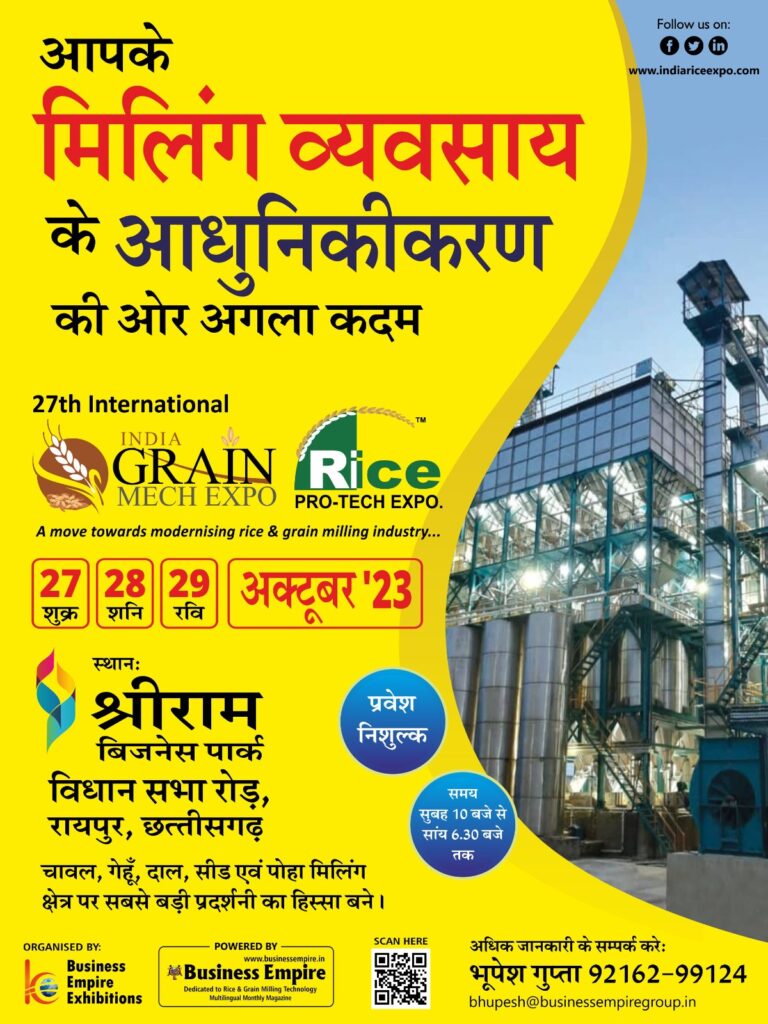Basmati growers reap bumper profit as price crosses ₹4,000 mark
By Neeraj Mohan
Basmati growers of Haryana are eying a rich dividend this year as the Union government’s decision to relax the minimum export price (MEP) to US $850 from US $1,200 has led to a sudden rise in the prices of the premium aromatic long-grained basmati rice pushing it beyond ₹4,000 a quintal.
Reports from the mandis of the basmati belt of Haryana reveal that the prices of the early maturing premium basmati varieties like moochal (duplicate basmati), Pusa 1121 and Pusa 1718 have reached around ₹4,200 a quintal. Even, as the prices of the lower quality varieties like Pusa 1509 and Pusa 1692 have also witnessed a jump in the past one week since the government relaxed the norms.
“I have sold my produce of two acres at the price of ₹4,175 a quintal and it is for the first time in my recent memories that the prices of the moochal paddy have crossed ₹4,000 mark,” said a farmer, Rajnesh Kumar of Yamunanagar’s Radaur.
Another farmer Binder Singh said, “Not only the prices but the better yield of around 24 quintal per acre helped me to earn a bumper ₹1 lakh per acre from three acres I had under moochal basmati this year. It was my highest-ever earning from one acre of paddy”.

Traders and arhtiyas predict that the prices of the traditional aromatic basmati variety PB 30 may reach around ₹7,000 a quintal against the last year’s ₹6,000.
“The harvesting of premium basmati varieties just started. But this is a good sign for the farmers and rice traders. If the early maturing varieties are sold above ₹4,000, there is a strong possibility that the prices of the other premium varieties like PB 30, Pusa 1121, and Pusa 1718 may remain between ₹6,000 and ₹7,000 a quintal,” said Baldev Singh, a bidder of rice trading companies in Kurukshetra.
Traders said the prices of basmati rice witnessed an immediate jump soon after the Agricultural and Processed Food Products Export Development Authority (APEDA) announced its decision to bring down the minimum export price to US $850 per tonne, from the earlier price of US $1,200. Vijay Setia, former president of All India Rice Exporters Association (AIREA), said, “The government has given assurance to bring the price cap to US $850 and a notification regarding this decision is likely by Friday. But they have to take measures to ensure that the traders cannot export non-basmati rice in the name of basmati rice”.
“But the move to reduce the price cap has encouraged traders and rice millers. They were eying a good profit following a surge in demand for Indian basmati rice in the international market,” he added.
According to rice traders, following a demand in the international market, the prices of aromatic rice like Pusa 1121 and traditional basmati are likely to reach above ₹1 lakh per metric tonne (MT). This could also cause a rise in the price of premium basmati rice in the domestic market.
This article has been republished from The Hindustan Times

